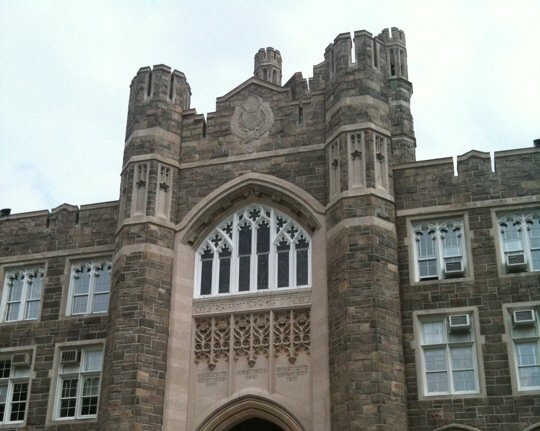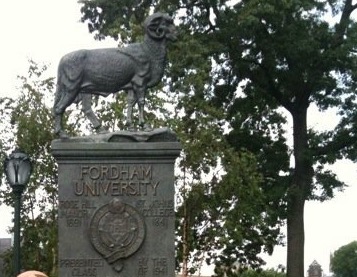Priest: Trump Would Have Benefited From Sticking With Jesuit, Liberal Arts Education
What is the value of a four-year liberal arts degree?


Detroit Today host Stephen Henderson recently spoke with author and pastor Jim Wallis about race and moral responsibility in the Trump Era. He talked about the question of how we as human beings should view and treat the most vulnerable among us.
Another man of the cloth, former Fordham University professor Fr. Ray Schroth, recently pointed out the fact that Trump missed out on a Jesuit education at Fordham that may have made him think differently about that question. Trump attended Fordham’s Rose Hill campus in the Bronx, NY during his first two years as an undergraduate. But he left to attend the University of Pennsylvania’s Wharton School of Business.
Schroth tells Henderson on Detroit Today that Trump left before he had the opportunity to benefit from the meat of Fordham’s liberal arts curriculum, which focuses on humanities, philosophy, and an educational culture that promotes openness and compassion.
Schroth writes in his article “The education of the future president Donald Trump” in Newsday:
Fordham’s method was to integrate learning within a survey of Catholic social thought. Other courses, such as epistemology, might have introduced him to logic and idealism, while literature would lead him to Homer, Dante, Cervantes, Shakespeare, Dostoevsky and Tolstoy. But young Trump was more interested in learning how to make money and avoid the draft.
The conversation also begs the question — what is the value of a liberal arts degree, especially in 2017? We hear a lot from politicians and in media these days about encouraging more students to go into skilled trades, technical and highly specialized fields because they come with more job opportunities, less student debt, and better salaries. Is that true? And is the educational value alone of a liberal arts degree still worth it?
Henderson also speaks with University of Detroit Mercy philosophy professor Dave Koukal, who says “it’s a hard sell.”
“No one’s against you making a living,” Koukal says he tells students considering which path to take. “But taking your core courses… seriously, is something that’s going to expand your world… It’s also going to give them certain kinds of skills that’s going to help them in their vocations, so they’re complimentary. But the most important point I would make is this kind of education is going to make them better citizens.”
Click on the audio player above to hear the full conversation.
